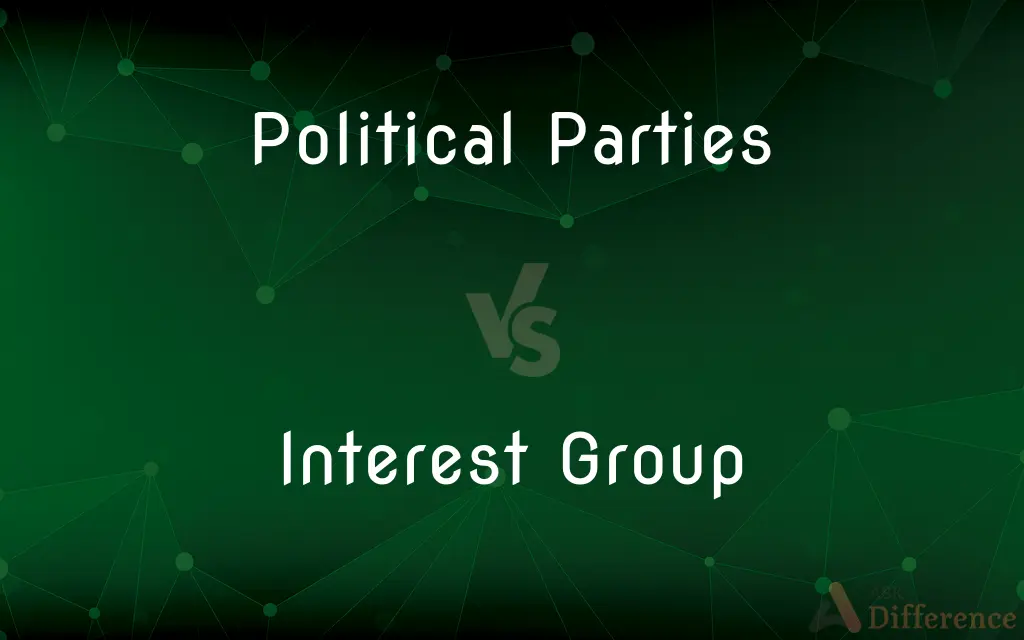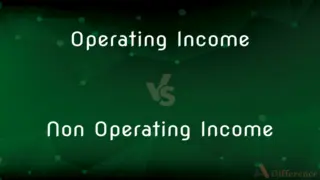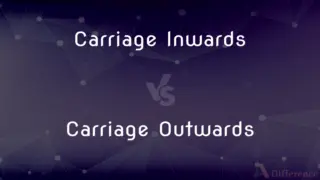Political Parties vs. Interest Group — What's the Difference?
By Tayyaba Rehman — Published on October 15, 2023
Political Parties are organized groups seeking to attain governmental power, while Interest Groups focus on influencing policy on specific issues without aiming for direct political control.

Difference Between Political Parties and Interest Group
Table of Contents
ADVERTISEMENT
Key Differences
Political Parties and Interest Groups both play pivotal roles in a democracy, but they have distinct purposes and operations. Political Parties are organizations with broad agendas that seek to attain, maintain, or influence political power through elections. Their primary goal is to win elections and implement their policies. For instance, the Democratic and Republican parties in the U.S. contest for various public offices.
Conversely, Interest Groups are associations that promote a specific cause or agenda, without the intention of directly contesting elections. Instead of aiming for political office, they influence those in power to make decisions that favor their causes. Environmental lobbies, business associations, and civil rights organizations are examples of Interest Groups.
While Political Parties are characterized by their comprehensive platforms that cover a wide range of issues, Interest Groups typically focus on narrower, specialized areas of concern. For example, while a political party might have stances on healthcare, taxation, foreign policy, and more, an interest group might solely advocate for renewable energy policies.
Another distinction between Political Parties and Interest Groups lies in their public presence. Political Parties are highly visible, especially during election cycles, as they field candidates, host conventions, and engage in campaigns. In contrast, Interest Groups may operate more behind the scenes, lobbying legislators, funding research, or organizing grassroots campaigns.
In essence, Political Parties and Interest Groups are both essential cogs in the machinery of democracy. While Political Parties strive for direct control over governance through electoral success, Interest Groups exert influence on specific policy areas by swaying decision-makers.
ADVERTISEMENT
Comparison Chart
Primary Objective
Attain governmental power through elections
Influence policy on specific issues
Focus
Broad agendas
Narrow, specialized concerns
Election Participation
Contest elections directly
Do not contest elections directly
Public Presence
High visibility, especially during elections
Often operate behind the scenes
Examples
Democratic Party, Republican Party
National Rifle Association, Sierra Club
Compare with Definitions
Political Parties
Associations advocating for broad policy platforms.
The two major Political Parties in the U.S. are the Democrats and Republicans.
Interest Group
Associations advocating for particular causes or agendas.
An Interest Group can be narrowly focused on a single issue.
Political Parties
Organizations with structures, hierarchies, and membership.
Political Parties often have youth wings to engage younger members.
Interest Group
Entities that do not contest elections but influence decision-makers.
Interest Groups often employ lobbyists to advocate for their causes.
Political Parties
Organized groups aiming to achieve political power through elections.
Political Parties often have conventions to set their platforms.
Interest Group
Groups that might use public campaigns, research, or lobbying as tools.
Interest Groups play a key role in shaping public opinion on specific topics.
Political Parties
Entities that field candidates for public office.
Political Parties play crucial roles during election cycles.
Interest Group
Bodies often operating behind the scenes to affect policy outcomes.
The Interest Group funded research to support their claims.
Political Parties
Bodies that play pivotal roles in democratic governance.
Political Parties contribute to shaping a nation's political discourse.
Interest Group
Organizations seeking to influence public policy in specific areas.
The Interest Group lobbied for stricter environmental regulations.
Common Curiosities
What are Political Parties?
They are organized groups aiming to achieve political power through elections.
How do Interest Groups function?
They seek to influence public policy on specific issues without contesting elections.
Do Political Parties focus on single issues?
No, Political Parties typically have broad policy platforms covering multiple issues.
Do all Political Parties have the same influence?
No, the influence of Political Parties varies based on factors like membership, funding, and electoral success.
What tactics might an Interest Group use to promote its cause?
Lobbying, public campaigns, research, and grassroots mobilization are common strategies.
Can Interest Groups become Political Parties?
While rare, some Interest Groups might evolve into or form alliances with Political Parties.
Are Interest Groups always non-profit entities?
Not necessarily. Interest Groups can be non-profit, for-profit, or a mix, depending on their structure and goals.
Can individuals be members of both Political Parties and Interest Groups?
Yes, individuals can support a political party and also be part of one or more Interest Groups.
How do Political Parties and Interest Groups interact?
Interest Groups often lobby Political Parties or politicians to influence policy decisions.
Why are Political Parties essential in democracies?
They offer voters choices, represent diverse views, and help in the governance process.
Do Interest Groups represent citizens' views?
They represent specific agendas or causes, which may align with certain citizens' views.
Why might someone join an Interest Group?
To advocate for a specific cause or issue they are passionate about.
Do Political Parties always align with the views of Interest Groups?
Not always. While there might be overlaps, there can also be disagreements on specific issues.
How are Political Parties funded?
Through membership fees, donations, government funding (in some countries), and other fundraising activities.
Is the influence of Interest Groups always transparent?
Not always. Some operate openly, while others might have more covert influences.
Share Your Discovery

Previous Comparison
Operating Income vs. Non Operating Income
Next Comparison
Carriage Inwards vs. Carriage OutwardsAuthor Spotlight
Written by
Tayyaba RehmanTayyaba Rehman is a distinguished writer, currently serving as a primary contributor to askdifference.com. As a researcher in semantics and etymology, Tayyaba's passion for the complexity of languages and their distinctions has found a perfect home on the platform. Tayyaba delves into the intricacies of language, distinguishing between commonly confused words and phrases, thereby providing clarity for readers worldwide.














































